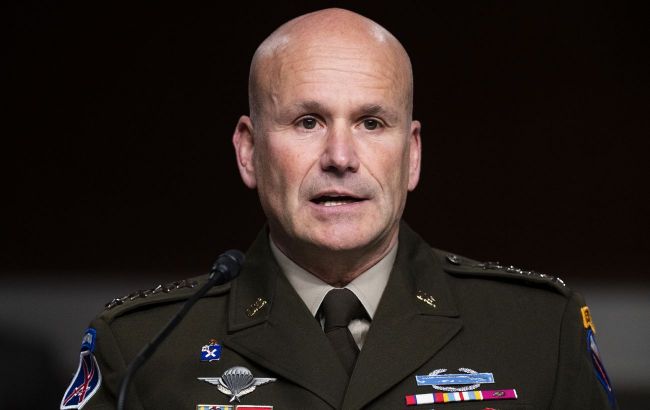NATO general praises Ukrainian actions in war with Russia and outlines key tasks
 Photo: NATO General Christopher Cavoli (GettyImages)
Photo: NATO General Christopher Cavoli (GettyImages)
The course of Russia's war against Ukraine is becoming increasingly difficult to predict as it continues. However, the Ukrainians currently have a great strategy for fighting, according to General Christopher Cavoli, the Supreme Allied Commander in Europe.
Cavoli states that one of the challenges they observed, and one of the biggest lessons they could learn from the war in Ukraine, was that in modern wars, one either wins quickly or faces a long, unpredictable struggle. He notes that this was the situation they were in now.
The general notes that the course of the war will depend on the ability to generate power. In particular, it will depend on which side will be able to accumulate high-quality force faster and take advantage of it while it has a window of opportunity.
Ukraine's excellent tactics
Cavoli notes that the Ukrainians are currently generating such force and skillfully building their strategy:
The NATO general states that over the last few months, the Ukrainians had been focused on defending the eastern territories, preventing Russia from freely using Crimea and southern Ukraine to launch attacks, maintaining their access to the Black Sea, and generating power. He believes that they had a great strategy and emphasized that it was just a matter of continuing to execute it.
At the same time, he notes that the key part of force generation for Ukraine currently depends on the EU and NATO countries.
He adds this will require NATO to accumulate and produce more equipment than they thought, perhaps, two years ago.
Illusions are unacceptable
When asked about the next steps for countries that have spent a lot of resources on helping Ukraine and are hesitant to continue funding to concentrate on their problems, Cavoli says that the outcome of the fighting in Ukraine is vital for the future of European and global security.
He also emphasizes that the world should have no illusions about the end of the war in Ukraine.
The general emphasizes that at the end of the conflict in Ukraine, regardless of how it ends, there would be a significant problem with Russia. He points out that Russia would be rebuilding its forces, positioned on NATO's borders, and would still be led by largely the same people who were convinced that NATO was the enemy and were very, very angry.
He notes that the industrial production of the EU and NATO countries should be ready for this challenge.
At the same time, Cavoli added that the main problem now is not so much finances as the production of military equipment.
He says NATO has a little more difficulty with procurement, and this is a strategic problem for the alliance.
Kaovoli adds that the US underestimates how the EU countries have woken up to the challenge.
He concludes that it wasn't a show or mere rhetoric, but a genuine concern for the stability of the continent and the survival of NATO states. He emphasizes that this was fundamental and that NATO must recognize and encourage its development.
Security agreements for Ukraine
Yesterday, Ukraine signed security agreements with Czechia and Slovenia. The documents were signed in the British city of Woodstock.
Thus, Ukraine has already signed 25 bilateral security agreements. In particular, with the United Kingdom, Germany, France, Denmark, Canada, Italy, the Netherlands, Finland, Latvia, Spain, Belgium, Portugal, Sweden, Iceland, Norway, Japan, the United States, the EU, Estonia, Lithuania, Poland, Luxembourg, Romania, Czechia, and Slovenia.
On July 11, Ukraine signed a security guarantee agreement with Luxembourg.

